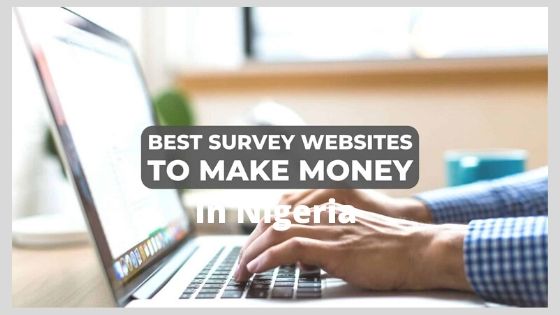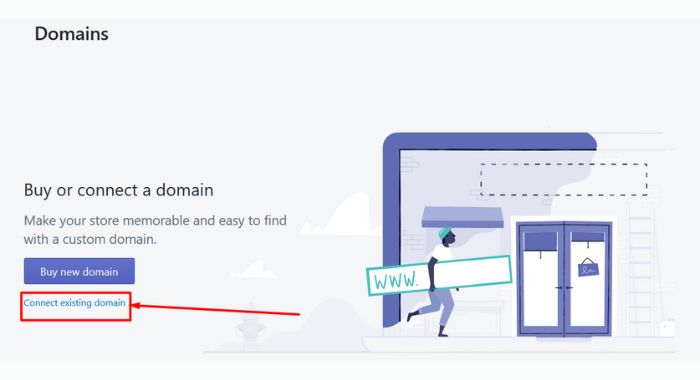How To Make Money With Shopify & Mini Importation Business
In today’s post, we’ll learn how we can start a Shopify store with mini importation business and make money on a daily basis.
It’s no doubt eCommerce is trending and the entry barrier to this business model isn’t as tough as it uses to be. Now, you can start a full-fledged e-commerce store with Shopify in Nigeria with as low as 10K.
Majority of the hard is done already by Shopify, you just need to import products and begin promotion of your Shopify e-commerce website.
I’ll talk about the basics of mini importation business and how you can start immediately and makeover six figures on a monthly basis.
Then I’ll also talk about Shopify, why this platform is a unique one and how you can take advantage of it to your own benefit. So let’s get started!
What is Mini Importation Business?
Basically, just like the sound of the name, mini importation is a small scale importation business. It requires you to import cheap products from other country and sell them in Nigeria to make profits.
Your products could be imported from any country but 80% of mini imported products are from China. Other countries could be the US and the UK.
The reason why this business is so lucrative owes to the fact that they are gotten from the supplier at a crazily cheap price. I’ve seen products cost less than 100 naira from a supplier and the same product is sold in Nigeria for over 5000 Niara!
Can you see the profit margin?
Yeah!
That’s why the mini importation business is so lucrative. But, if it’s this lucrative why isn’t everybody doing it?
I know right…
Well, the truth is, information!
Most people lack access to information that works and the fact that you’re reading this equally shows you want information on the subject matter.
Or are you not?
The possible barriers that can hinder the success of this business could be how to ship products down to Nigeria. If you’ve noticed, products with free shipping always take forever to land in Nigeria.
The secret of those successful at it is using a third party shipping logistics company that can ship their products to them at a cheaper price and at the same time as fast as possible.
Once these barriers are out of the equation you’re just a step away to been successful at it!
Requirements For Starting Mini Importation Business With Shopify
To be successful in this business you need to meet some certain criteria’s in other for you to avoid the stories that touch the heart.
At the same time, having some of these requirements will allow you to easily scale up your mini importation business.
They include:
- A valid home address
- Mean of Payment (this could be your VisaCard, MasterCard or even Paypal)
- At least an idea of how mini importation business works
- Startup capital (this could be as low as 15k or less or more depending on how big your pocket is)
- A corporate account with a registered business name
- Payment gateway
- Logistics companies
- Suppliers to buy products from i.e. websites
The only e-commerce challenge most people might be having is the business registration and corporate account.
However, the reason for that is because of the payment gateway you’ll integrate with your Shopify store to collect money from your customers.
Although, most people prefer to pay after delivery in Nigeria and some don’t care about paying before they receive their product.
Button line, having a register business name is a plus advantage to you, as I see no reason why you shouldn’t want to register your business in the first place.
Having a business RC Number will also boost your customer’s confidence towards your store, with this, the issue of prepaid payment will be reduced.
Now, let’s talk about Shopify and why you should use it.
What is Shopify and How Can You Use it?
Shopify is an eCommerce platform for both newbies and experienced web developer seeking to sell their products online.
You can call it a website builder that allows merchants like you and me to develop, market and sell any kind of product to any part of the world.
Shopify presently hosts over 350,000 active online stores that generate more than $20billion in sales across the world.
As you can see, you can sell products online using Shopify just like the popular Jumia and Konga most especially when you have no experience of creating your own online store from scratch.
Shopify features
- Site builder with hundreds of free themes to use
- Fully hosted plans with unlimited bandwidth and products to sell
- Hundreds of premium themes to use
- Easy to use payment gateways
- Tons of Apps to fortify your website
- POS payment to receive money anywhere and anytime
- Sell on Facebook using their Shopify lite plan
- New or existing domain name with “myshopify.com” etc…
What really caught my attention with Shopify is the built-in SEO feature for ranking high on search engines. This means whenever someone is looking to buy a product online via the search engine probably through Google search.
Chances are your store will be on the first page of Google search engine result, which is very good for your business.
What can you sell on Shopify?
There’s quite a lot of things you can do with Shopify, you can sell your physical products, digital products and lots more.
Setting-up your Mini Importation Business with Shopify
Once you’ve decided you want to sell your product on Shopify, these are the necessary steps to take.
#1: Import Your Products
Make sure you have your products available in Nigeria or at least on the way before you launch your Shopify store. Below are few of the website you could look into to order your products:
- AliExpress
- Alibaba
- eBay
- Amazon
- Dhgate
- DealExtreme etc.
#2: Create Your Online Store with Shopify
Shopify is a subscription-based website which means you need to pay a certain fee for using their website every month.
But that shouldn’t be an issue once you benefiting from the platform. The good thing is they offer a 14 days free trial. So even when you are not ready to sell or just wondering how the platform works, you could play around with the 14 days free trial and upgrade whenever you want to.
To create your store just follow the Shopify wizard is going to help you through the whole process. You can get started here.
#3: Upload Your Product on Shopify
Once you have your product available you need to display the kind of products you are selling just like how you see them on Jumia, Konga etc. To do this, you could save the product image from the supplier you bought it from.
Upload the image through your Shopify account and make sure you write the product description and Meta tags.
Create catalogues for your products and make sure you group them accordingly if you’re going to sell multiple products. But, I’ll advise you to sell products related to each other like niche products.
#4: Marketing Your Products
Don’t be like most people that expect to start seeing income immediately without doing anything. Once your shop is set-up online you need to showcase them to people that are likely to buy through marketing.
How do you do this? by runing ads for your products.
Here are a few ways to do that:
-
Instagram Shoutout:
browse around Instagram and look for authority accounts around the products you’re selling.
Contact the owner to display some of your products to their followers with your link in their description based on negotiation though. This is usually cheaper compare to other ads.
-
Facebook Ads:
I think this is the most popular way to create awareness of products. Create a Facebook ad manager and run adverts for your products.
The good thing about Facebook ads is that they’re very specific. You could target a specific state, town or even country you want them to see your product.
Other ways to create awareness for your product is through a popular forums and other social media networks in Nigeria.
#5: Delivery System
You need to have a delivery system in place that will manage your products delivery. With this third party delivery company, you’ll be able to sell products to customers irrespective of their location and be rest assured they are delivered safe and sound.
You could keep your product inventory with the delivery company you’re using and send customer details to them whenever you have an order. Or keep the products and send it to Delivery Company whenever you have an order. They’ll do the rest.
A good example is
- courier plus
- ace.ng
- Gig logistics
- Kobo 360 etc.
Conclusion
As you can see it’s not so difficult, selling your products online is the best way to maximize your ROI. It will allow you to reach tons and millions of customers you can reach if you’re to go buy it the traditional way.
The truth is, over 70% of the products on the likes of Jumia, Konga etc. are international products imported and resold in Nigeria.
I sell products on Jumia and I do have my personal store.
You also can do the same.
All it takes is setting your Shopify store and imported products you can sell in Nigeria.





![Shopify Review: How To Use Shopify In Malaysia [Pros & Cons]](https://smartbizfreedom.com/wp-content/uploads/2023/09/Malaysia.jpg)
![How to Start Drop Servicing Business in Malaysia [Easy Way]](https://smartbizfreedom.com/wp-content/uploads/2022/05/oberlo-vs-Salehoo-3.jpg)
![Shopify Review: How To Use Shopify In Colombia [Pros & Cons]](https://smartbizfreedom.com/wp-content/uploads/2023/09/Colombia.jpg)

![Online Business That Pays In Nigeria [Daily, Weekly & Monthly]](https://smartbizfreedom.com/wp-content/uploads/2020/04/online-business-that-pays-in-nigeria.jpg)
How can a create the Shopify account?
Its quite easy just click Shopify link and follow through the instruction